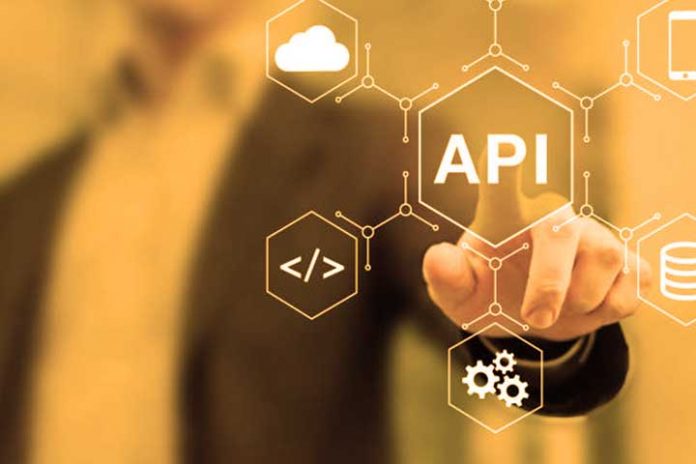An API is an Application Programming Interface, software for communicating with other software components.
If you are curious about the world of web development, indeed, you have read the term API on more than one occasion. In this post, we will explain what an API is and what it is used for since they are fundamental parts of the applications and websites that are made.
API is the acronym in English for Application Programming Interfaces or, translated into other languages, Web Programming Interface. It is a set of functionalities to enable software to communicate.
The main objective is the exchange of information between different systems.
These information exchanges allow to automate data processes and also create new functionalities.
APIs serve a multitude of technical purposes, such as:
- Online payments through RedSys, PayPal, or Stripe
- For communication between business software such as ERP/CRM such as Zoho, Odoo, Salesforce
- To view online maps such as Google Maps.
- To connect with Social Networks such as Twitter, Facebook, Youtube, etc.
How to use an API
To use an API, you will need several things: a series of public and private keys that indicate who is connecting and a series of functions or methods that we use to send and receive information.
Typically, the use of an API is defined by the documentation you provide us about that API. The most widespread use is connecting and authenticating through credentials and requesting/sending information through functions.
API types Differences between SOAP and REST
SOAP
SOAP stands for Simple Object Access Protocol; it defines how two objects in different processes communicate through XML data exchange and receive requests through HTTP or SMTP.
REST
REST Is the Representational State Transfer. REST is an architecture style; they do not have an official standard. There are also RESTful APIs, which are more limited. For an API to be RESTful, it must meet these six limitations:
- Client-server architecture
- stateless system
- Caching
- layered system
- Uniform interface
- Code available on request
RESTful APIs are more straightforward than a SOAP protocol, making them more common today.
API Usage Examples
Use Google Maps to locate companies, send the product catalogue of our online store to Amazon, accept payments on our website with a RedSys card through PayPal or Stripe, send the properties of our real estate ERP and display them on a web page. .. As you can see, many uses can be made thanks to the APIs.
- Social: Twitter, Facebook, Instagram
- Location: Google Maps
- Financial: Stripe, PayPal, RedSys
- Companies: salesforce, Odoo, Zoho
- E-Commerce: Amazon
- Administration: Bank
- Marketing: Mailchimp
A practical example of API is when they send us a form on our website in the contact section. Through the use of an API, this information is sent to a CRM, and it instantly receives the potential customer’s data to manage the sales opportunity.
Another example is when a real estate company has ERP software for managing properties, farms, rentals, agents, houses, visits, etc., and wants to display these properties on a web page. Any data modified in the real estate business software will automatically be sent to the website, allowing the synchronization and automation of this information and eliminating having to enter the data both in the real estate software and on the website.
An online store that wants to have its catalogue on Amazon fully synchronized with the marketplace is another example of using APIs.
Advantages of using an API
Having an API allows communication between two or more software easily. This improves the business models of companies, and the way developers work by making their work more straightforward and more agile, providing new perspectives and flexibility.
The main advantages of an API are:
- Reduce maintenance costs
- Increase agility in transformation processes
- Create new opportunities to attract customers and partners
- Automate processes
- Easily adaptable to new needs
If you have an online store and want to automate your catalogue with Amazon if you have an ERP software in which you have your real estate data. You need to publish it on a website if you want to connect your website with a CRM if what you need is to synchronize your catalogue with your Dropshipping provider.
Also Read: What Trends Will Set The Digital Transformation In 2022?

